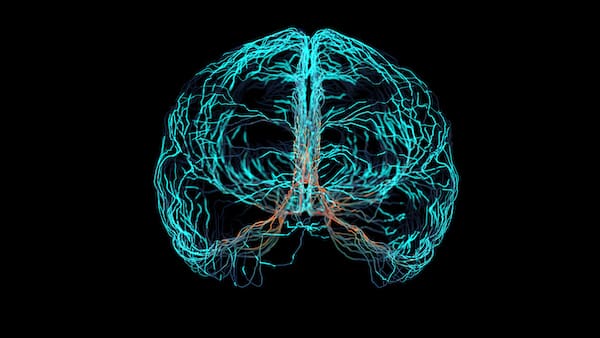What is BDNF Protein?
BDNF stands for brain-derived neurotrophic factor and is a protein that is widely expressed in the central nervous system (CNS) and acts as a growth factor for neurons. BDNF has many important functions within the brain, such as neuronal maturation, synapse formation, and synaptic plasticity. Additionally, BDNF can regulate neurotransmission by activating TrkB receptors which leads to downstream effects through various signaling pathways.
BDNF plays a key role in understanding the pathophysiology of depression as well as researching effective treatments for depression. Reduced levels of BDNF are present in the hippocampus and prefrontal cortex in patients with depression. Peripheral BDNF levels increase during various treatments for depression.
How Do Antidepressant Treatments Work?
Antidepressant drugs increase the extracellular levels of monoamines such as serotonin and norepinephrine. These drugs enhance the extracellular levels of monoamines within hours; however, the antidepressant response is delayed and usually requires at least several weeks of treatment before a sufficient antidepressant response is achieved. Therefore, other mechanisms downstream of the enhancement of extracellular level of monoamines are believed to mediate the antidepressant response. In this context, BDNF has been linked to the mechanism of action of antidepressants.
What is the Relationship Between BDNF and Antidepressants?
The neurotrophic hypothesis of depression suggests that the most important role in the pathogenesis of depressive disorders is played by abnormalities in the maintenance of neuronal plasticity regulated by BDNF. Studies have shown that exogenous BDNF infusions in rodents cause antidepressant-like effects, prevent the depressogenic effects of chronic stress, and increase cell survival in the hippocampus and prefrontal cortex. However, it remains unclear how peripheral administration mediates these reported effects since BDNF is poorly transported across the blood-brain barrier.
In addition, bilateral BDNF-infusions into the hippocampus or the ventricles induce antidepressant-like effects in preclinical animal models that can persist for several days.
Antidepressant drugs enhance BDNF and TrkB mRNA expression in the hippocampus and prefrontal cortex regions of the brain in a timeframe similar to the onset of the antidepressant-like response. Furthermore, treatment with antidepressants leads to an increase in hippocampal neurogenesis (new brain cell growth) around the same time that they take effect – suggesting that this process requires time due to BDNF expression being enhanced only after use of antidepressants over a period of time. The involvement of the hippocampus and prefrontal cortex in antidepressant efficacy does not preclude the involvement of other areas of the brain, as diverse neural circuits are likely required for antidepressant responses.
Genetic studies have confirmed that BDNF is essential in mediating the therapeutic effect of antidepressants. For example, in patients with depression, the BDNF val66met SNP, as well as two other BDNF SNPs, have been linked to a reduced response to antidepressant treatment suggesting that these SNPs may impact treatment responses to antidepressants.
BDNF and Esketamine (Spravato)
A relatively recent development in the treatment of depression is Esketamine, marketed as Spravato. Research suggests that Esketamine is effective long-term because it activates the BDNF-TrkB cascade in the prefrontal cortex and the hippocampus. As Björkholm and Monteggia stated in the above study, “Work to date suggests that the rapid upregulation of BDNF protein and subsequent TrkB activation triggers an increase in synaptic efficacy that is required for the antidepressant action of ketamine.” Esketamine continues to be an important treatment option for depression, and Mid City TMS has provided Esketamine treatment for years.
BDNF and TMS
BDNF also plays a role in how Transcranial Magnetic Stimulation (TMS) works. A 2011 study in rats by Wang, et. al., found evidence that “rTMS to cortex facilitates BDNF–TrkB–NMDAR functioning in both cortex and lymphocytes.” Similarly, a 2019 study by Zhao, et. al, provided evidence that “rTMS may increase BDNF and decrease IL-1β and TNF-α serum levels in elderly patients with refractory depression.” Similarly, in a paper published in February 2023, Pan, et. al, studied the effects of rTMS on patients with depression and suicidal ideation, and concluded that, “The changes of serum levels of BDNF, TrkB, and VGF were positively correlated with the improvement of the severity of suicidal ideation and depressive symptoms in the active rTMS group.” As the scientific evidence increases, it continues to appear that BDNF has a significant relationship with the effectiveness of treatment with TMS.
Consider TMS and Esketamine Treatment for Your Depression
If you have depression and have tried many different treatment options, consider learning more about TMS and Esketamine among your potential next steps. TMS treatment has proven to be effective in treating depression and providing long-term relief to patients. Esketamine is also a safe and effective option. Contact us today to learn more about your potential treatment options with Mid City TMS and get relief from your depression symptoms today.



















